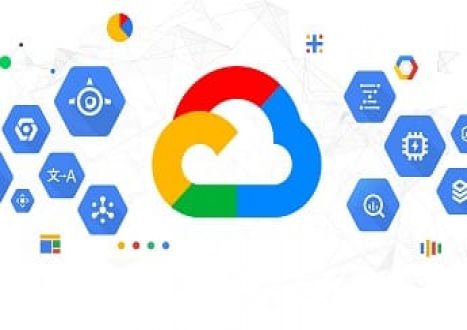- Home
- Video Courses
- Certifications
- Professional Data Engineer: Professional Data Engineer on Google Cloud Platform Dumps


Professional Data Engineer: Professional Data Engineer on Google Cloud Platform Certification Video Training Course
Professional Data Engineer: Professional Data Engineer on Google Cloud Platform Certification Video Training Course includes 201 Lectures which proven in-depth knowledge on all key concepts of the exam. Pass your exam easily and learn everything you need with our Professional Data Engineer: Professional Data Engineer on Google Cloud Platform Certification Training Video Course.
Curriculum for Google Professional Data Engineer Certification Video Training Course




















Professional Data Engineer: Professional Data Engineer on Google Cloud Platform Certification Video Training Course Info:
The Complete Course from ExamCollection industry leading experts to help you prepare and provides the full 360 solution for self prep including Professional Data Engineer: Professional Data Engineer on Google Cloud Platform Certification Video Training Course, Practice Test Questions and Answers, Study Guide & Exam Dumps.
Master the GCP Professional Data Engineer Exam with Practice Tests
Course Overview
The GCP Professional Data Engineer Exam Training Course is designed to provide comprehensive preparation for individuals aspiring to achieve certification as a Professional Data Engineer on Google Cloud Platform. This course is structured to bridge the gap between theoretical knowledge and practical application, ensuring participants gain a deep understanding of core GCP services, data engineering best practices, and real-world problem-solving scenarios.
This course focuses on equipping learners with the skills required to design, build, operationalize, secure, and monitor data processing systems. Participants will learn to leverage GCP tools and services for data storage, data processing, analytics, and machine learning. Beyond just passing the certification exam, this course aims to prepare learners for real-world applications where data-driven decisions are critical to business success.
By the end of the course, participants will gain the ability to architect data solutions that are reliable, scalable, efficient, and secure. They will also be able to analyze and optimize existing data pipelines, apply best practices in data governance, and ensure compliance with security and privacy standards. This training emphasizes hands-on learning, scenario-based exercises, and continuous assessments to track progress.
Learning Objectives
This course has clear and measurable learning objectives. Participants will learn to design and implement data processing systems using GCP services. They will develop skills to integrate storage solutions such as BigQuery, Cloud Storage, Cloud SQL, and Spanner to support analytical workflows. Learners will master ETL and ELT processes, develop real-time data pipelines using Dataflow and Pub/Sub, and implement batch processing workflows.
Another key objective is to understand and leverage machine learning services in GCP, including AI Platform and Vertex AI, to build predictive models that solve business problems. Students will gain expertise in managing, monitoring, and troubleshooting data pipelines, optimizing performance, and reducing operational costs.
The course also emphasizes security and compliance, ensuring that learners can implement access controls, encryption, and audit logging. Participants will gain insights into disaster recovery planning and data lifecycle management to ensure business continuity and data availability.
By the conclusion of the course, learners should be confident in applying best practices for data modeling, data integration, and data analytics, making them ready to take the GCP Professional Data Engineer exam and apply these skills in real-world environments.
Course Structure
The training course is divided into multiple modules, each focusing on specific aspects of the GCP Professional Data Engineer role. Each module combines theoretical explanations with practical exercises, case studies, and hands-on labs to reinforce learning. The course is designed to gradually build complexity, starting from fundamental concepts and progressing to advanced topics.
The modules are structured to ensure that participants first develop a strong foundation in cloud computing and GCP services, then move into advanced topics such as data processing pipelines, analytics, and machine learning integration. Each module includes a combination of video lectures, reading materials, practical exercises, and assessments to measure understanding.
Learners will have access to cloud-based labs that provide a safe environment to experiment with GCP services without impacting production environments. This hands-on approach ensures that participants not only understand the concepts but can also apply them in real scenarios.
Module 1: Introduction to Google Cloud Platform
This module provides a comprehensive introduction to GCP, covering its architecture, services, and global infrastructure. Participants will learn about virtual machines, networking, storage options, and managed services. The module emphasizes understanding the shared responsibility model, billing, and cost management in GCP.
Students will explore the GCP Console, Cloud Shell, and Cloud SDK, understanding how to interact with services using both graphical and command-line interfaces. By the end of this module, learners will have a solid understanding of GCP fundamentals and how to navigate its ecosystem efficiently.
Module 2: Data Storage Solutions
In this module, participants dive deep into data storage options on GCP. The module covers relational databases such as Cloud SQL, NoSQL databases like Firestore and Bigtable, and large-scale analytical storage with BigQuery. Learners will explore Cloud Storage, understanding buckets, object lifecycle management, and storage classes.
Emphasis is placed on choosing the right storage solution based on performance, cost, and scalability requirements. Participants will learn about data partitioning, clustering, indexing, and data retention policies to optimize storage performance and reduce costs.
Module 3: Data Processing and Pipelines
This module covers batch and streaming data processing, focusing on building robust data pipelines. Students will learn how to implement ETL and ELT workflows using Dataflow, Dataproc, and Apache Beam. Real-time processing using Pub/Sub and Dataflow will be explored in detail.
The module also teaches orchestration using Cloud Composer and workflow automation to ensure reliable, scalable, and maintainable pipelines. Participants will gain expertise in monitoring and troubleshooting data pipelines, optimizing performance, and managing operational costs.
Module 4: Data Analytics and Visualization
Participants will learn how to analyze and visualize data to extract actionable insights. This module covers BigQuery for analytical queries, Data Studio for dashboards, and Looker for business intelligence solutions. Students will explore data modeling, schema design, and query optimization to improve analytical performance.
The module emphasizes interpreting results, generating business insights, and making data-driven recommendations. Participants will gain skills in building automated reporting systems and designing dashboards for different stakeholders.
Module 5: Machine Learning and AI Integration
This module introduces machine learning concepts and their integration into data pipelines. Participants will explore Vertex AI, AutoML, and TensorFlow on GCP. The course covers data preparation, model training, evaluation, and deployment for predictive analytics.
Learners will understand the lifecycle of machine learning projects, including feature engineering, hyperparameter tuning, and model monitoring. Emphasis is placed on deploying models in production environments securely and efficiently.
Module 6: Security, Compliance, and Governance
This module focuses on securing data and ensuring compliance with industry regulations. Participants will learn about IAM roles, access control, encryption at rest and in transit, and audit logging. Best practices for data governance, regulatory compliance, and risk management are covered extensively.
The module also explores disaster recovery strategies, data retention policies, and secure data sharing practices. Participants will gain a strong foundation in implementing enterprise-level security and governance in GCP.
Module 7: Exam Preparation and Practice
The final module prepares participants specifically for the GCP Professional Data Engineer exam. This includes reviewing key concepts, taking practice exams, and analyzing case studies. Students will learn exam strategies, time management, and common pitfalls to avoid.
Hands-on labs and scenario-based exercises provide practical experience, reinforcing knowledge gained in previous modules. Participants will leave the course fully prepared to tackle the certification exam with confidence.
Course Requirements
The GCP Professional Data Engineer Exam training course is designed to be accessible to individuals with varying degrees of experience in cloud computing and data engineering. However, to ensure participants can fully benefit from the course, certain requirements are recommended. These requirements encompass technical knowledge, software access, learning mindset, and practical experience. Meeting these requirements will enable learners to engage effectively with the course content, complete hands-on exercises, and ultimately succeed in both the training and the certification exam.
Technical Prerequisites
Before starting the course, participants should have a basic understanding of computer science concepts, including programming, databases, and networking. Familiarity with programming languages such as Python, SQL, or Java is highly beneficial. Python is particularly useful for data manipulation, scripting, and working with machine learning libraries. SQL knowledge is essential for querying relational databases and performing analytical tasks.
Understanding core database concepts such as tables, indexes, joins, normalization, and transactions will help learners grasp data storage and processing concepts more quickly. Familiarity with relational databases like MySQL, PostgreSQL, or SQL Server, as well as NoSQL databases like MongoDB or Cassandra, provides a foundation for exploring GCP-specific storage solutions.
A basic understanding of networking concepts such as IP addressing, firewalls, load balancing, and VPNs is also valuable. This knowledge helps learners understand how GCP services communicate securely across the cloud infrastructure. Participants should be comfortable with concepts such as private and public subnets, network routing, and virtual private clouds (VPCs).
Cloud Computing Knowledge
Although this course includes an introduction to Google Cloud Platform, prior exposure to cloud computing concepts will accelerate learning. Participants who understand cloud service models, such as Infrastructure as a Service (IaaS), Platform as a Service (PaaS), and Software as a Service (SaaS), will more easily comprehend GCP offerings.
Knowledge of other cloud providers, such as AWS or Azure, can provide context, but it is not mandatory. Understanding cloud storage, compute, and network basics will help participants adapt more quickly to GCP’s environment. Familiarity with cloud security concepts, scalability, and high availability principles is advantageous. Participants should understand the benefits of cloud elasticity, cost optimization, and managed services.
Access to GCP Environment
Participants are required to have access to a Google Cloud Platform account to complete hands-on labs and exercises. While the course is designed to be safe for learners to experiment without affecting production systems, access to the GCP Console, Cloud Shell, and relevant services such as BigQuery, Dataflow, Pub/Sub, and Vertex AI is essential.
Learners should ensure that they have sufficient billing quotas or use GCP free-tier credits to perform exercises without interruption. Understanding the GCP pricing model, including storage costs, compute engine costs, and network usage, is recommended to manage resources efficiently during labs. Participants should also be comfortable navigating the GCP Console and executing commands in Cloud Shell.
Software and Tools
Beyond GCP access, participants may need to install or be familiar with certain tools. These include Python IDEs such as PyCharm, VS Code, or Jupyter Notebooks for scripting and machine learning exercises. Understanding Git for version control can help manage code and collaborate during practical exercises.
Command-line tools, including the Google Cloud SDK and gsutil, are used extensively in labs. Participants should be comfortable running commands, configuring authentication, and navigating directories in a terminal environment. Familiarity with containerization tools such as Docker and orchestration tools like Kubernetes may be beneficial for advanced topics but is not strictly required for initial modules.
Prerequisite Courses
While this course is comprehensive, prior coursework in related areas enhances the learning experience. Courses in data analysis, data engineering fundamentals, SQL, Python programming, and cloud computing provide a solid foundation. Learners who have completed introductory GCP courses or general cloud computing courses can progress through this course more quickly.
Knowledge of data analytics and machine learning fundamentals, such as basic statistics, data visualization, supervised and unsupervised learning, and regression analysis, will support understanding of advanced modules that involve AI and ML integration. Participants should be familiar with evaluating model performance metrics such as accuracy, precision, recall, and F1-score.
Learning Mindset
Success in this course requires a proactive learning mindset. Participants should be prepared to engage with complex topics, experiment with hands-on labs, and solve real-world scenarios. Persistence and curiosity are essential traits, as some modules, such as building and troubleshooting data pipelines or integrating machine learning models, may present challenges that require iterative problem-solving.
A commitment to consistent study and practice is highly recommended. Participants should set aside regular time to complete readings, watch video lectures, and practice exercises. Engaging in peer discussions, forums, or study groups can enhance understanding and provide alternative perspectives on challenging topics.
Time Commitment
Participants should expect to dedicate significant time to this course. On average, learners may spend between 10 to 15 hours per week over several months to fully absorb the material, complete labs, and revise concepts before attempting the certification exam. Time commitment may vary depending on prior knowledge and learning pace.
It is advisable to allocate additional time for practice exams, scenario-based exercises, and project work. Preparing for the GCP Professional Data Engineer exam is not just about memorizing facts; it involves applying knowledge in practical and realistic situations. Structured time management ensures participants can complete all modules without rushing and retain knowledge effectively.
Recommended Experience
While beginners with foundational programming and database knowledge can take this course, participants with experience in data engineering, cloud computing, or analytics roles will find the course content more intuitive. Professionals who have worked on data pipelines, cloud-based storage solutions, or machine learning projects will benefit from the practical exercises and scenario-based labs.
Experience in designing, implementing, and monitoring data workflows provides context for understanding advanced topics such as performance optimization, cost management, and real-time streaming data pipelines. Those who have participated in previous certification programs or cloud projects will be better positioned to relate theoretical concepts to practical applications.
Internet and Hardware Requirements
A reliable and high-speed internet connection is essential to access video lectures, cloud labs, and online resources. Most hands-on exercises involve interacting with cloud-based services, which require stable connectivity to prevent disruptions.
Participants should have a modern computer capable of running IDEs, terminal commands, and web-based cloud consoles. Adequate RAM, storage, and processing power are recommended to handle data-intensive tasks, especially when working with large datasets or performing machine learning model training locally.
Continuous Learning and Updates
Participants should be prepared to engage in continuous learning. Google Cloud Platform evolves rapidly, with frequent updates, new services, and changes in best practices. Staying current with GCP documentation, release notes, and community forums is recommended.
Engaging with ongoing learning ensures that participants not only pass the exam but remain effective data engineers in real-world environments. Embracing a growth mindset allows learners to adapt to new technologies, explore innovative solutions, and maintain professional relevance in the rapidly changing cloud ecosystem.
Support and Community
Participants are encouraged to leverage support resources and communities to enhance learning. Official GCP documentation, Qwiklabs, online tutorials, and forums provide supplementary guidance. Engaging with peers through study groups, discussion forums, and professional networks facilitates problem-solving and knowledge sharing.
Understanding how to seek help, troubleshoot issues, and collaborate effectively is a key skill for data engineers. Active participation in the GCP community helps learners stay updated on industry trends, share experiences, and gain insights from professionals who have successfully achieved certification.
Course Description
The GCP Professional Data Engineer Exam training course is a comprehensive program designed to prepare participants for one of the most in-demand cloud certifications. This course covers all aspects of data engineering on Google Cloud Platform, including data storage, processing, analytics, machine learning integration, security, governance, and operational best practices. It is structured to provide a balance between theoretical knowledge, hands-on experience, and practical problem-solving scenarios.
The course begins with foundational concepts, introducing learners to the Google Cloud ecosystem, its architecture, and core services. This introduction ensures that participants gain a solid understanding of cloud computing principles and GCP’s unique offerings. Early modules focus on storage solutions, helping learners choose the appropriate database or storage type for different use cases, whether for transactional workloads, analytical processing, or real-time streaming.
As participants progress, the course emphasizes building and operationalizing data pipelines. Learners will explore batch and streaming processing, using services such as Dataflow, Dataproc, Pub/Sub, and Cloud Composer. The course provides detailed guidance on designing scalable and efficient pipelines, integrating multiple data sources, and handling common challenges such as latency, throughput, and fault tolerance.
Analytics and visualization are integral to this training. Participants will work with BigQuery, Looker, and Data Studio to query large datasets, design optimized schemas, and generate actionable insights. The course emphasizes data-driven decision-making, teaching learners how to extract meaningful information from complex datasets and present it in a way that informs business strategies.
Machine learning integration is another key component. The course introduces learners to Vertex AI and AutoML, guiding them through data preparation, model training, evaluation, deployment, and monitoring. Participants learn how to integrate predictive models into data pipelines, automate workflows, and optimize model performance for business applications.
Security, governance, and compliance are covered extensively. Participants will learn how to implement identity and access management, encryption, audit logging, and regulatory compliance measures. Best practices for data governance, data lifecycle management, and disaster recovery are explored, ensuring learners can maintain secure and reliable data systems.
The course also emphasizes exam readiness. Learners are guided through exam strategies, time management, and scenario-based practice questions that reflect real-world situations. By combining theoretical understanding with practical application, the course ensures participants are fully prepared to pass the GCP Professional Data Engineer exam and apply their skills in professional environments.
Learning Outcomes
Upon completion of this course, participants will have the knowledge and skills necessary to design, implement, and manage data solutions on Google Cloud Platform. They will be capable of building scalable and efficient data pipelines, integrating storage solutions, performing advanced analytics, and applying machine learning models to solve business problems.
Learners will understand how to optimize data workflows, monitor performance, and troubleshoot issues. They will be equipped to implement security measures, ensure compliance with regulations, and establish governance policies for data management. The course provides practical experience that translates directly to workplace scenarios, preparing participants for both the certification exam and real-world data engineering challenges.
Participants will also develop the ability to make strategic decisions about data architecture, balancing performance, cost, and scalability. They will gain confidence in applying best practices in cloud data engineering, leveraging GCP tools effectively, and collaborating with cross-functional teams to deliver actionable insights.
Who This Course Is For
This course is ideal for professionals and aspiring data engineers who want to specialize in Google Cloud Platform. It is suitable for individuals with a background in IT, software development, data analytics, or related fields who wish to advance their careers by gaining a recognized cloud certification.
Data analysts, data scientists, and business intelligence professionals who want to deepen their understanding of GCP’s data engineering capabilities will benefit from this course. By gaining hands-on experience with data pipelines, storage, analytics, and machine learning services, they can enhance their ability to deliver insights and predictive analytics solutions.
IT professionals, system administrators, and cloud architects seeking to expand their skill set into data engineering will find this course valuable. It provides a structured pathway to understanding how to design, implement, and manage cloud-based data solutions while ensuring security, compliance, and operational efficiency.
Students and recent graduates with a foundational understanding of programming, databases, and cloud computing can also take this course to accelerate their careers in cloud data engineering. The course equips them with both the knowledge and practical skills needed to enter the field confidently and pursue professional certification.
Ideal for Professionals in Specific Roles
The course is particularly suited for professionals in roles such as Data Engineer, Cloud Engineer, Analytics Engineer, Machine Learning Engineer, and Business Intelligence Developer. Data Engineers will gain expertise in building robust and scalable data pipelines, while Cloud Engineers can expand their knowledge of GCP-specific services and best practices.
Analytics Engineers and Business Intelligence Developers will benefit from learning advanced analytics, query optimization, and dashboard creation using GCP tools. Machine Learning Engineers will gain practical experience in integrating AI and ML models into production workflows, automating predictions, and monitoring model performance.
Project managers and technical leads overseeing data-driven projects can also benefit by understanding the technical landscape, enabling better planning, resource allocation, and risk management in cloud data initiatives.
Career Advancement Opportunities
Completing this course opens doors to a variety of career opportunities in cloud computing and data engineering. Certified professionals can pursue roles in organizations adopting Google Cloud Platform for their data infrastructure, analytics, and AI initiatives.
The GCP Professional Data Engineer certification is recognized globally, validating expertise in designing and managing data solutions on GCP. This certification demonstrates proficiency in cloud architecture, data processing, analytics, machine learning, and security. It enhances employability, salary potential, and career progression in competitive technology markets.
Organizations benefit from professionals who have completed this course by gaining team members who can optimize data workflows, implement secure and scalable data solutions, and leverage advanced analytics for business insights. Participants can contribute to digital transformation initiatives, improve operational efficiency, and drive data-informed decision-making across enterprises.
Practical Skills Gained
Participants will leave the course with practical, hands-on skills applicable to real-world projects. They will be able to design end-to-end data pipelines that handle both batch and streaming data, integrate multiple storage solutions, and optimize performance for cost and efficiency.
They will gain the ability to use BigQuery for advanced analytics, generate business insights, and design dashboards and reports for various stakeholders. Learners will understand the lifecycle of machine learning models, from data preparation to deployment and monitoring, ensuring they can deliver AI-driven solutions effectively.
Security, governance, and compliance skills ensure that participants can protect sensitive data, implement access controls, and maintain compliance with industry regulations. They will also develop expertise in monitoring, troubleshooting, and maintaining data systems to ensure high availability and reliability.
Flexibility for Diverse Learning Paths
This course accommodates learners from diverse backgrounds, whether they are transitioning from another cloud platform, seeking to upskill in data engineering, or starting their careers in technology. Its modular structure allows participants to focus on areas where they need additional support, while also providing a complete pathway for those pursuing comprehensive knowledge.
The course’s hands-on labs, scenario-based exercises, and practice exams ensure that learners can apply theoretical knowledge to practical challenges. This experiential approach helps solidify concepts and builds confidence in both technical skills and exam readiness.
Long-Term Benefits
Completing this course provides long-term benefits beyond certification. Participants develop a mindset for continuous improvement, staying updated with evolving cloud technologies and best practices. They gain the confidence to innovate, optimize processes, and contribute to data-driven organizational strategies.
Professionals can leverage the skills acquired to mentor junior engineers, lead cloud-based projects, and implement efficient, scalable, and secure data architectures. The combination of technical proficiency, practical experience, and industry-recognized certification positions learners for leadership and strategic roles in data engineering and cloud computing domains.
Student Feedback
Similar Google Video Courses




























Only Registered Members Can Download VCE Files or View Training Courses
Please fill out your email address below in order to Download VCE files or view Training Courses. Registration is Free and Easy - you simply need to provide an email address.
- Trusted By 1.2M IT Certification Candidates Every Month
- VCE Files Simulate Real Exam Environment
- Instant Download After Registration.
Log into your ExamCollection Account
Please Log In to download VCE file or view Training Course
Only registered Examcollection.com members can download vce files or view training courses.




